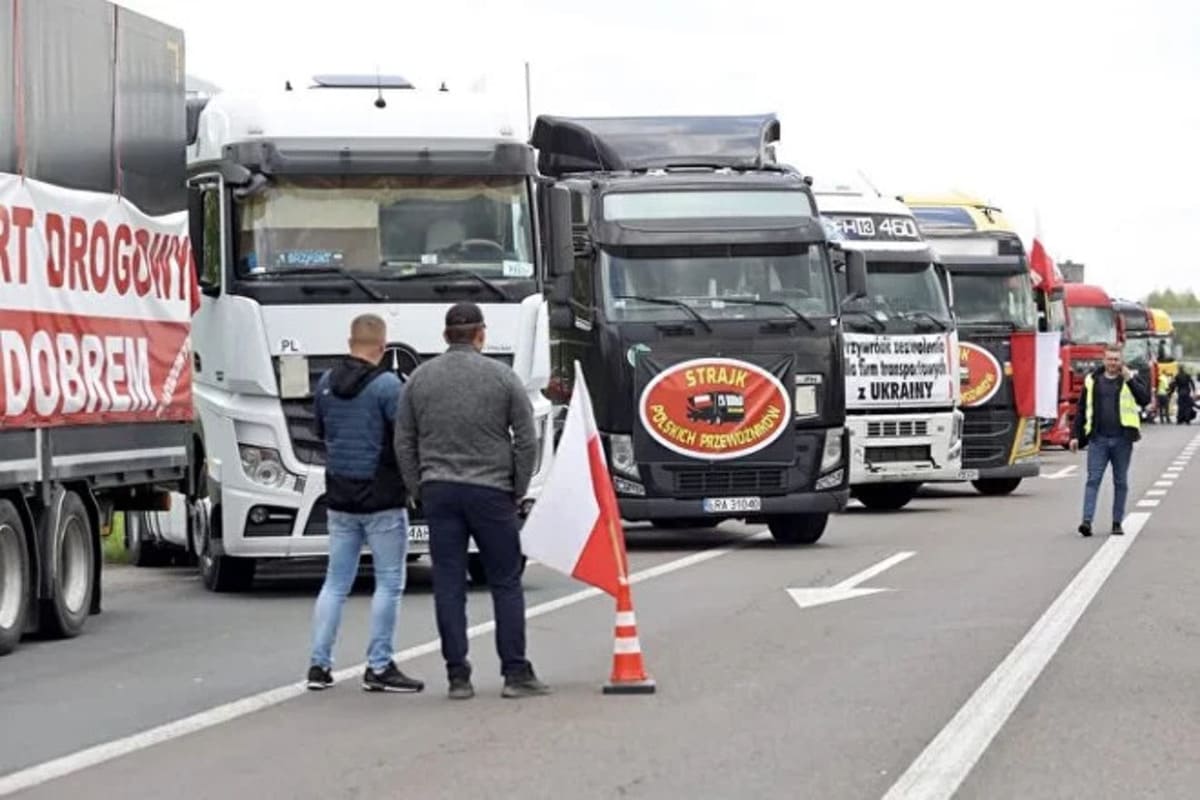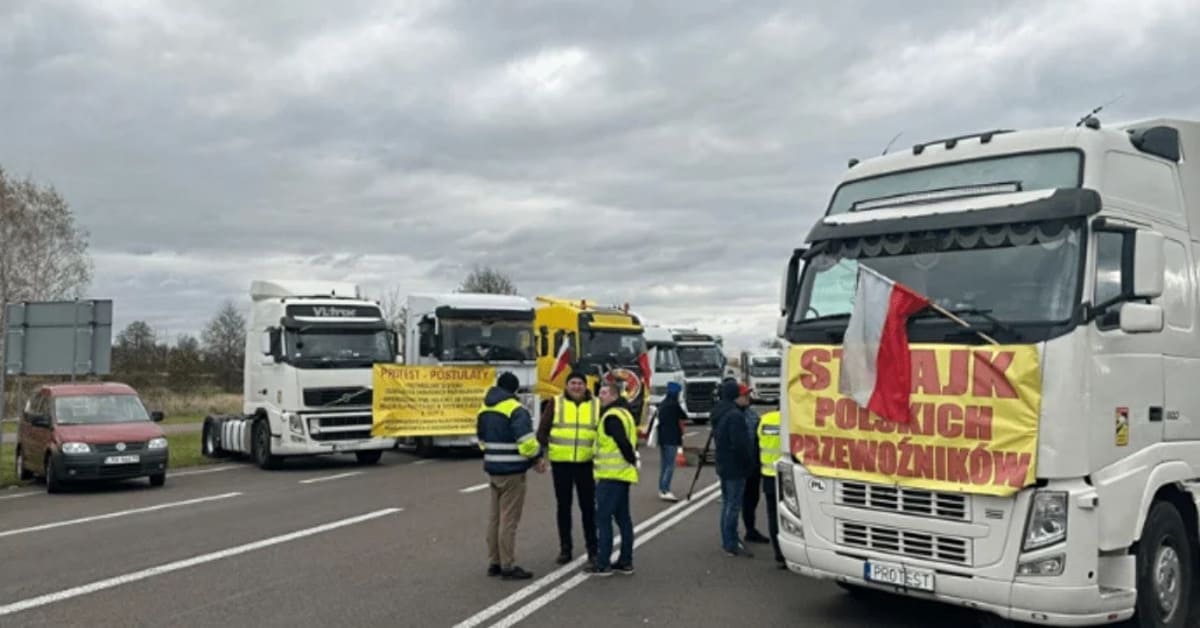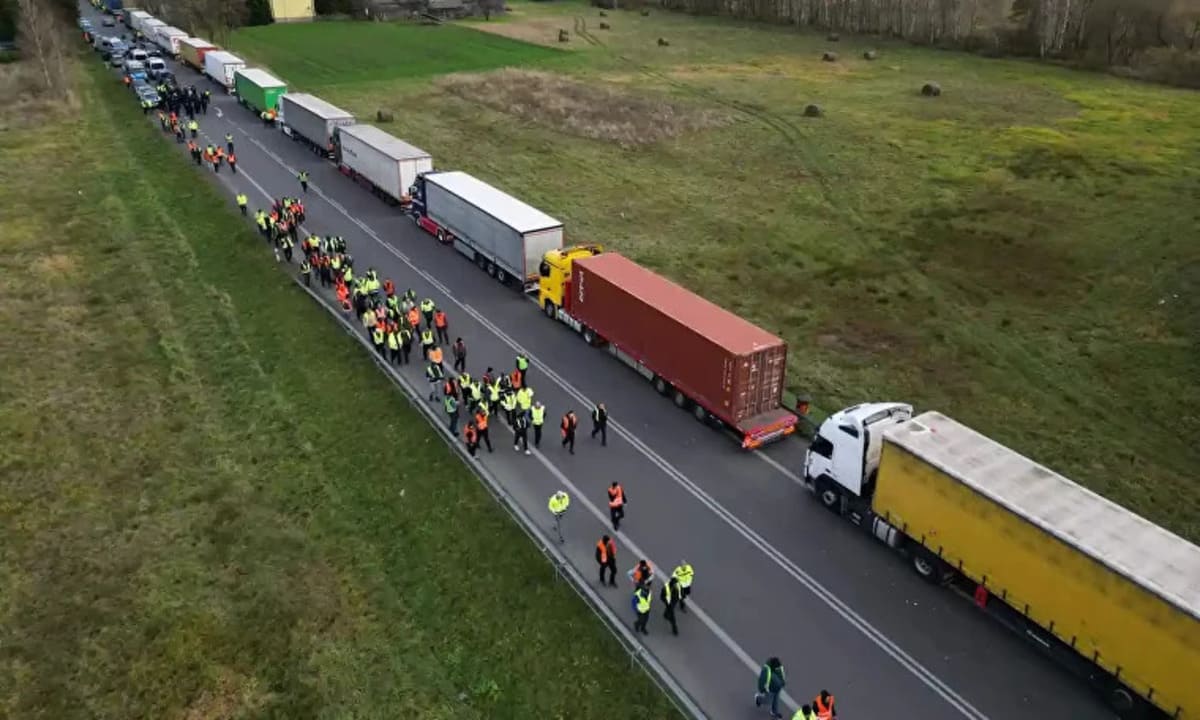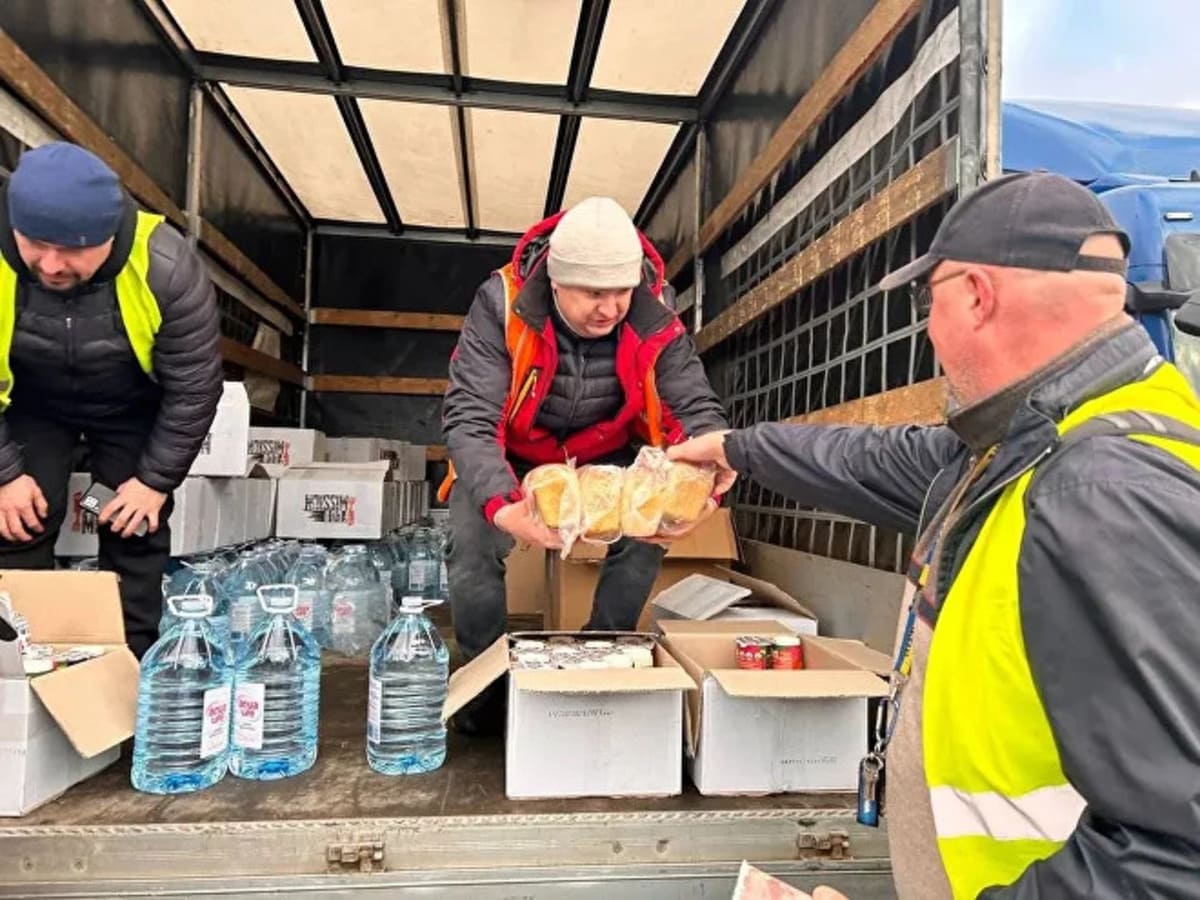
For more than two weeks, Polish carriers have been blocking the movement of freight transport on the border with Ukraine, causing nearly 3,000 trucks to queue up. Their main demand is to restore the system of permits for Ukrainian carriers that the European Union canceled last summer. Every day of downtime due to the strike causes millions in losses to companies. DiFFreight has analyzed the positions of the different parties to the conflict and figured out what the strike at the Polish border could lead to.

Strike at the Medyka-Shehyni checkpoint
In June 2022, Ukraine and the European Union signed an agreement on the so-called "transport visa-free regime". Moldova signed a similar document. The agreement eliminates the need for Ukrainian carriers to obtain appropriate permits for bilateral and transit transportation to EU countries and avoids stopping the export of Ukrainian products through automobile checkpoints. The "transport visa-free regime" was supposed to work for a year, but the agreement has now been extended until July 2024.
On November 6, Polish carriers began an indefinite protest. Their main demands to the Ukrainian government are to return the practice of permits for Ukrainian carriers and to ban Ukrainian companies from registering their branches in the EU. The strike led to a complete halt in traffic at three border crossings between Poland and Ukraine: "Dorohusk-Yagodyn, Korczowa-Krakowiec, and Hrebenne-Rava-Ruska. On November 23, farmers joined the Polish carriers and began blocking the fourth checkpoint, Medyka-Shehyni.
In total, Polish carriers have put forward six demands to Ukraine:
The traffic blockade has already led to numerous negative consequences for businesses in Ukraine and their counterparties abroad. In particular, transportation costs are increasing significantly, which affects the cost of production and price competitiveness of companies.
Routes are being changed, while queues at the Slovak and Hungarian borders are growing. Businesses are already reporting a shortage of transportation, including due to the reluctance of carriers to take orders during the strike. Failure to fulfill obligations to Ukrainian and foreign customers will result in penalties from buyers, cancellation of further orders, and loss of customers.
The inability to import the necessary raw materials or components poses risks to Ukrainian production facilities. All this directly affects the access of the population in Ukraine to the necessary goods and the smooth operation of enterprises.

Trucks near the Polish-Ukrainian border in Dorohusk
Ukrainian companies are losing at least UAH 1 million a day due to downtime. As of November 22, the losses incurred by Ukraine's economy have already amounted to €400 million. Ukraine is also facing a shortage of critical goods, such as fuel. Experts predict that rising fuel prices will lead to higher prices for everything from food to consumer goods.
The acceleration of inflation will have a domino effect. This will primarily affect the exchange rate due to increased demand. On October 3, the NBU switched to a flexible exchange rate regime. In addition to fuel, other critical imports, such as drones, thermal imagers, and medical supplies, are stuck at the border. Humanitarian cargo is also not allowed through, although protesters promised to let it through. How long this can last is a rhetorical question. According to optimistic scenarios, the conflict can be resolved no earlier than February-March 2024.

Ukrainian drivers stranded in Poland receive food and humanitarian aid
After the death of the second Ukrainian driver at the border, Ukraine sent an official note to the Polish Foreign Ministry and began organizing the evacuation of drivers. Deputy Minister of Infrastructure Serhiy Derkach said that Ukraine was initiating the creation of a monitoring group from the European Union to record the free passage of humanitarian aid and the conditions of drivers in the queue.
Prior to that, representatives of the Ministry of Community Development, Territories and Infrastructure of Ukraine met with their colleagues from the Polish Ministry of Infrastructure at the Yagodyn-Dorohusk checkpoint, but failed to agree on ending the blockade.
The European Commission is investigating whether the blockade violates EU law, in particular, the "transport visa-free regime" with Ukraine, which is supposed to be in effect until June 2024. A representative of the European Commission said that Poland must ensure the free movement of Ukrainian trucks, otherwise it could be punished.